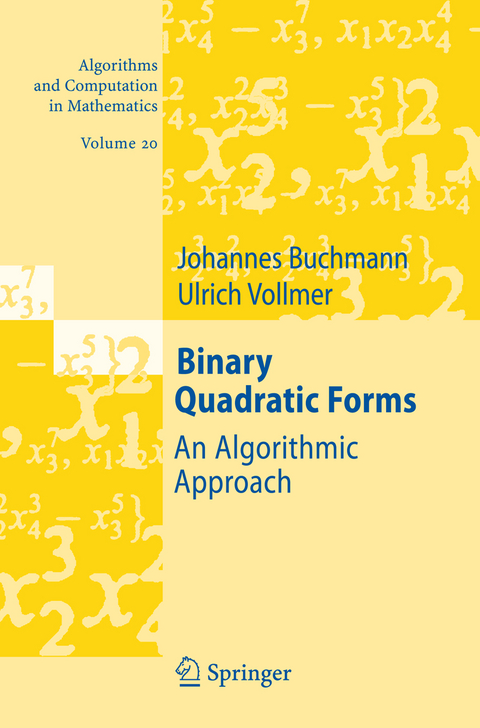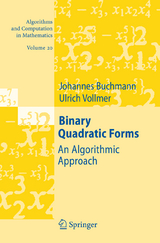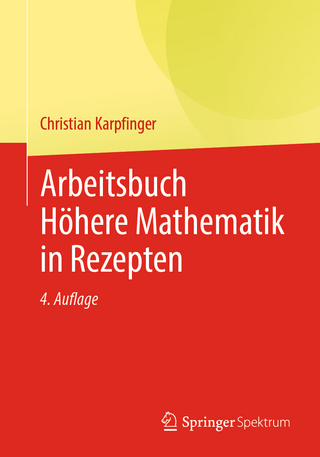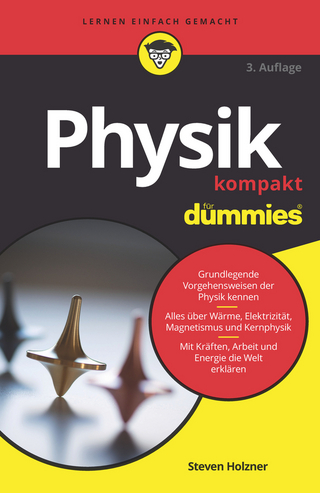Binary Quadratic Forms
Springer Berlin (Verlag)
978-3-540-46367-2 (ISBN)
Johannes A. Buchmann is Professor of Computer Science and Mathematics at the Technical University of Darmstadt, and an Associate Editor of the Journal of Cryptology. In 1985, he received a Feodor Lynen Fellowship of the Alexander von Humboldt Foundation. He has also received the most prestigious award in science in Germany, the Leibniz Award of the German Science Foundation (Deutsche Forschungsgemeinschaft).
Binary Quadratic Forms.- Equivalence of Forms.- Constructing Forms.- Forms, Bases, Points, and Lattices.- Reduction of Positive Definite Forms.- Reduction of Indefinite Forms.- Multiplicative Lattices.- Quadratic Number Fields.- Class Groups.- Infrastructure.- Subexponential Algorithms.- Cryptographic Applications.
From the reviews:
"Quadratic Field Theory is the best platform for the development of a computer viewpoint. Such an idea is not dominant in earlier texts on quadratic forms ... . this book reads like a continuous program with major topics occurring as subroutines. The theory appears as 'program comments,' accompanied by numerical examples. ... An appendix explaining linear algebra (bases and matrices) helps make this work ideal as a self-contained well-motivated textbook for computer-oriented students at any level and as a reference book." (Harvey Cohn, Zentralblatt MATH, Vol. 1125 (2), 2008)
"The book under discussion contains the classical Gauß -Dirichlet representation theory of integral binary quadric forms. ... Many of the algorithms presented in this book are described in full detail. The whole text is very carefully written. It is therefore also well suited for beginners as in addition no special knowledge on Number Theory is necessary to understand the text. It can also be recommended to teachers who give courses in Number Theory or Computational Algebra." (J. Schoissengeier, Monatshefte für Mathematik, Vol. 156 (3), March, 2009)
From the reviews:"Quadratic Field Theory is the best platform for the development of a computer viewpoint. Such an idea is not dominant in earlier texts on quadratic forms … . this book reads like a continuous program with major topics occurring as subroutines. The theory appears as ‘program comments,’ accompanied by numerical examples. … An appendix explaining linear algebra (bases and matrices) helps make this work ideal as a self-contained well-motivated textbook for computer-oriented students at any level and as a reference book." (Harvey Cohn, Zentralblatt MATH, Vol. 1125 (2), 2008)“The book under discussion contains the classical Gauß -Dirichlet representation theory of integral binary quadric forms. … Many of the algorithms presented in this book are described in full detail. The whole text is very carefully written. It is therefore also well suited for beginners as in addition no special knowledge on Number Theory is necessary to understand the text. It can also be recommended to teachers who give courses in Number Theory or Computational Algebra.” (J. Schoissengeier, Monatshefte für Mathematik, Vol. 156 (3), March, 2009)
| Erscheint lt. Verlag | 28.2.2007 |
|---|---|
| Reihe/Serie | Algorithms and Computation in Mathematics |
| Zusatzinfo | XIV, 318 p. |
| Verlagsort | Berlin |
| Sprache | englisch |
| Maße | 155 x 235 mm |
| Gewicht | 605 g |
| Themenwelt | Mathematik / Informatik ► Mathematik ► Algebra |
| Mathematik / Informatik ► Mathematik ► Wahrscheinlichkeit / Kombinatorik | |
| Schlagworte | Algebra • algebraic number theory • Algorithmic Number Theory • algorithms • Binärsystem • cryptography • Number Theory • quadratic forms • Quadratische Formen |
| ISBN-10 | 3-540-46367-4 / 3540463674 |
| ISBN-13 | 978-3-540-46367-2 / 9783540463672 |
| Zustand | Neuware |
| Haben Sie eine Frage zum Produkt? |
aus dem Bereich




